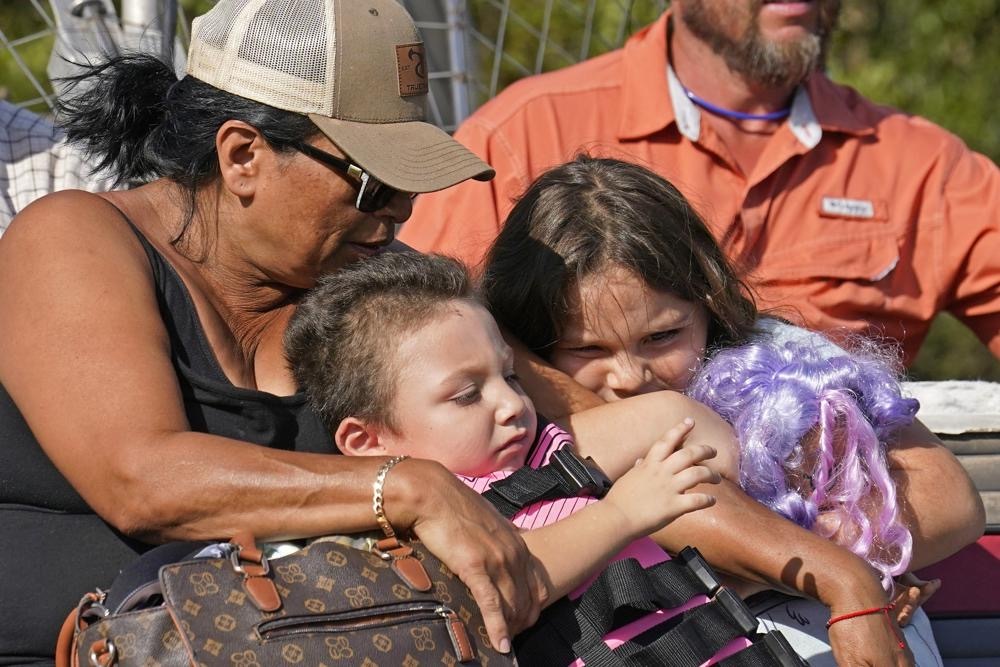
With her home gone and all her belongings trashed by Hurricane Ian, Alice Pujols wept as she picked through soggy clothes, toys and overturned furniture piled head-high outside a stranger’s house, looking to salvage something — anything — for her four children and herself.
“I’m trying to make it to the next day,” she said. “That’s all I can do. It’s really depressing. It really is.”
For those who lost everything to a natural disaster and even those spared, the anguish can be crushing to return home to find so much gone. Grief can run the gamut from frequent tears to utter despair. Two men in their 70s even took their own lives after viewing their losses, said the medical examiner in Lee County, where Ian first made landfall in southwestern Florida.
The emotional toll in the days, weeks and months after a hurricane, flood or wildfire can be crippling. More pressing needs for food, shelter and clothing often take priority to seeking counseling, which is in short supply even in good times.
“When someone’s in a state of trauma that so many are in, they don’t know where to begin,” said Beth Hatch, CEO of the Collier County, Florida, branch of the National Alliance of Mental Illness. “They need that hand-holding and they need to know that there’s so many people here to help them.”
Post-traumatic stress disorder, depression and anxiety rise along with substance abuse. Those with existing mental disorders are at greater risk of having those conditions exacerbated by the trauma.
A variety of help is available as additional resources are sent to the area.
The state of Florida was setting up support centers and the federal government has a 24-hour disaster distress helpline to provide counseling and crisis support. Hatch’s organization was going to some homes in hard-hit areas to check on clients with mental illness.
The vast majority of people, though, were still assessing damage, trying to retrieve and dry out possessions worth keeping and drag what couldn’t be saved to growing trash heaps by the side of the road.
Mao Lin walked an hour Thursday to reach the plot of land where she had lived on Fort Myers Beach, which looked like a blast zone. She was distressed to find it gone.
“The whole street — nothing’s left,” she said. “We don’t have a home. We don’t have a car. We don’t have anything. We have nothing left.”
___
Published with permission of the Associated Press.



